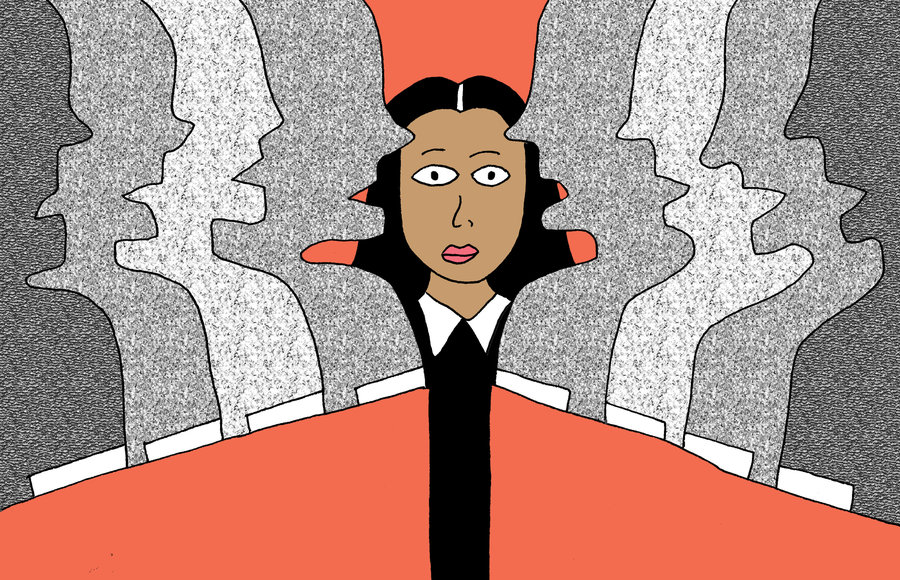(This report has been released by AOW: The NLS Feminist Alliance and has been republished with permission)
Introduction
A large part of what makes National Law School of India University a premiere university in the country is the opportunity it provides to students in terms of co-curricular and extra-curricular activities. We are privileged to learn, not only from our professors, but also through credit courses, talks, conferences discussions and debates. Access to these resource persons allows us to supplement our classroom learning with a wide range of diverse perspectives on various subjects and contributes to shaping our minds. However, very often, the people we invite to our campus as experts may often not be inclusive and representative of the diversity that exists.
We at AOW: The NLS Feminist Alliance undertook a “silent count” for the academic year of 2016-2017 We tracked the number of men and women who were invited to college as part of conferences, panel discussions, judges for competitions held across the year to measure whether there is a gender bias in who we invite as experts. The purpose of this study is not to allege deliberate bias or attack any committee, for we acknowledge there may be many genuine reasons for any disparity. Instead we want to bring this issue to the forefront, to ensure that committees are able to address this bias, if any, in the upcoming year.
Thus the question we asked was, do we, as the National Law School of India University, host ‘manels’?
What is a ‘Manel’?
This clever moniker refers to an all-male panel.[1] We’ve all seen them– in conferences, committees, panels and even Supreme Court benches. These include only men as representatives or members to debate, discuss and decide issues that affect all of us. Here are some famous examples of manels:



This list could go on. But the point is, a lack of representation of women exists in almost every sphere even today. A large part of the problem is manels, which by rendering women experts invisible contribute to the larger issue of recognition of women and their perspectives. Before we continue, we would like to address why ‘manels’ are an issue.
The Problem with Manels
Earlier this year, one of us attended a panel discussion on ‘Artificial Intelligence and the Law’ organized by the Law and Technology Society. To their credit, they had 2 extraordinary women from this field. During a presentation, a male member referred to leading opinions of four famous men in the field on the issue of AI. This was pointed out by one of the women speakers who then informed the room of the opinions of many women who had extensively written on the same issue.
Here, having a woman on that panel made sure that these women were given the representation they deserved and an entire room full of people learnt of the contribution of women in an industry which is often stereotyped as masculine.
Therein lies the first issue with manels. They hinder representation. Representation has both inherent and instrumental value.
Instrumentally, it promotes diversity of perspectives, which always makes for better discussion and debate. Very often these opinions may be identity specific where no panel on women rights or queer rights can or should be discussed without representing these identities. But this does not mean that the role of women should only be limited to discussions surrounding their identity as women. Even the fields of science, technology, economics that are usually understood to be blind to gender, have been proved to be geared towards the interest of men time and again. Be it the lack of knowledge of the female body, or the sexism in the Tech industry or the devaluation of women’s labour in society– it is only natural, since men have always dominated the field, which makes it all the more important to ensure that the voices and opinions of women in this field are heard across the world.
However there is also great inherent value to representation. Bringing visibility to women in the field helps reduce the barriers to entry and success for women in various professions. It was the lack of representation of women in history that made us all grow up thinking that all great inventions and art and music were by men. It was this lack of representation that denied recognition to Ada Lovelace while granting Charles Babbage a place in history, and what denied Rosalind Franklin a Nobel Prize despite her contribution to the discovery of the DNA, and what obscures the contribution of Savitri Bai Phule and the countless other phenomenal, talented women whose name have not even seen the light of the day.
Ignoring the contribution of women and denying them representation means that while their male counter parts are given increased recognition and the benefits that accompany it, women fall into the vicious cycle of no representation- no recognition- no representation, on repeat.
One of the biggest arguments often made against this is that of merit. “We don’t care about gender, we just want the best people. We don’t want to call women if it means reducing quality.” This argues against the tokenism that is often seen in industries, which include women for the sake of it. Very often these are women who have only been included to comply with reservations or fear of ridicule. But seeing this issue in these narrow terms ignores two very important issues. First, that merit does not exist in a vacuum. Who we consider the ‘best’ may very often be colored with the same biases that deny women representation in the first place. But second, women have to often prove themselves to be twice as better than their male counter parts to be given the same chance. As Richa Naujoks, partner at Richard Nixon and Peabody put it during AOW’s conference on sexism at the workplace last year, “Women are made partners at law firms because of their performance, and men because of expectations.” This holds true across fields. The problems of tokenism should, therefore, not be used and misused to deny representation to deserving women.
With that introduction, let’s focus our attention to Law School.
The Law School Scenario
In the year 2016-2017, various activity based (ABC’s) and Non activity-based committees (Non ABC’s) invited over 220 speakers to law school. This includes speakers for panel discussions, judges, professors for credit courses, etc. Of the total number of speakers, 63% were men.

To better understand the issue, we also looked at committee-wise breakup.
Committee Wise Break Up:

Committee Wise Break Up (Continued)

As you can see, while some committees have equal number of men and women, there are many which sorely lack representation. This is not to accuse any committee, for there are many reasons why this disparity exists. Given that men are still more in number in most fields, it is much easier to get men who are available compared to women. And there have been many incidents where despite wanting to include women, committees and organizers are unable to do so. But equally, committees often do not take into account this issue while deciding speakers and judges. We acknowledge that it may not be easy but we hope they will be willing to put the additional research and work that may come with contacting female speakers. There are quite a few faculty members on campus who would also be able to help out in this regard, given that NLSIU itself has produced a large pool of highly accomplished female alumni.
The same disparity is more starkly visible in the number of visitors that the college administration invites as distinguished guests:

Thus we can see, that a gender bias, whether subconscious or not exists in the kind of resource persons we as a college and as students part of committees contact. To clarify, the purpose of this exercise is simply to bring forth this issue into the minds of all Conveners, Joint Conveners, Committees and the student body in general to ensure that the next time they organize an event or a talk, they ensure that they make the effort to contact the many women who are contributing to their fields and acknowledge their efforts.
Before concluding, we would also like to acknowledge the limitations of this report. There are other issues of representation, which need to be addressed, before we can call ourselves a truly diverse place. However we believe this is a start to achieving the inclusive campus we all want to be a part of.
A detailed report of the data collected can be found below.[2] We’d like to thank everyone who provided us with the information used in this count.
[1] https://blog.oxforddictionaries.com/2017/07/on-the-radar-manel/
[2]https://docs.google.com/spreadsheets/d/18nGXnkKH0pH1zgCc0rtvQUga6Dor8D3EfHXhTRGmbhs/edit?pli=1#gid=0


Brilliant work, folks! 😀